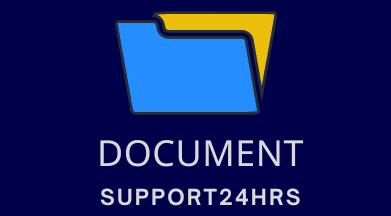How Is AI Streamlining Customs Procedures for Faster International Trade?

In a world that’s becoming increasingly interconnected, international trade stands as a key pillar of the global economy. The complexities of global business operations are ever-evolving, especially when it comes to navigating the maze of customs procedures in different countries. But technology is fast emerging as the leading player in the race to simplify the process and improve compliance with customs regulations. Specifically, the integration of Artificial Intelligence (AI) is rapidly transforming how customs and trade procedures are managed.
AI and the Modernization of Customs Operations
The role of AI in optimizing customs operations cannot be overstated. Its application is leading to a shift in paradigm from traditional methods to a more streamlined, data-driven approach.
Dans le meme genre : Explore the thrills of mystery box wine surprises
Traditionally, customs operations have been burdened with extensive paperwork, complicated processes, and manual inspections, leading to increased time and cost of trade. However, AI-enabled systems are capable of automating these procedures, thereby improving efficiency and reducing time spent on clearance processes.
AI systems’ ability to analyze large volumes of data in real time allows for accurate risk assessments, predicting potential issues and enabling preventive measures for smooth international trade. Such intelligent analysis aids in detecting fraud, smuggling, or security risks, thereby increasing the efficiency and effectiveness of customs operations.
En parallèle : How Can Machine Learning Optimize Real-Time Bidding in Digital Advertising?
Moreover, AI can help in predicting trade patterns and future trends, providing valuable intelligence that can be used for strategic decision making and policy formulation.
Enhancing Trade Compliance with AI
When it comes to international trade, compliance with customs rules and regulations is a significant challenge faced by businesses. In this context, AI can be a game changer, automating and simplifying compliance processes.
AI systems can use machine learning to analyze historical data and learn patterns, thus predicting potential areas of non-compliance and enabling businesses to address them proactively. Moreover, AI can automate the process of compiling and processing compliance data, reducing errors and improving accuracy.
For instance, AI can assist in correctly classifying goods as per the Harmonized System (HS) codes, a task that is often prone to human error. Accurate classification is crucial for determining customs duties and taxes, and mistakes can lead to penalties, delays or even seizures.
Through machine learning, AI can continuously improve its performance in managing compliance tasks, making it an invaluable tool for businesses involved in international trade.
AI and Supply Chain Management
The role of AI in streamlining customs procedures extends beyond compliance and operations to include supply chain management. AI, with its ability to process vast volumes of data, can provide insights into every stage of a supply chain, thereby facilitating better management and planning.
AI can predict supply chain disruptions by analyzing patterns in data, enabling businesses to develop contingency plans and minimize risks. It can automate inventory management, reducing the chances of overstocking or understocking.
In terms of international trade, AI can help in tracking shipments in real-time and predicting delivery times, taking into account factors like customs clearance time. This allows businesses to plan their operations better and provide reliable delivery timelines to their customers.
The Role of AI in Customs Clearance
AI is playing a pivotal role in expediting the process of customs clearance, a critical step in international trade.
Automated document processing, one of the key applications of AI, can significantly reduce the time taken for customs clearance. AI systems can "read" and extract relevant information from shipping documents, invoices, and other paperwork, which can then be processed quickly.
Further, AI can predict the likelihood of a shipment being held for customs inspection based on factors like the nature of goods, country of origin, and past data. This predictive ability can help businesses plan better and reduce uncertainties.
The Future of AI in Customs and Trade
There is no doubt that AI is revolutionizing customs and trade, making international business operations smoother and more efficient. The future promises even more innovations in this field.
With advancements in AI, we can look forward to more accurate risk assessments, better prediction of trade patterns, and further simplification of compliance processes. AI might even be used to automatically negotiate and pay customs duties and taxes, providing a completely automated customs clearance process.
AI will continue to transform customs procedures, and businesses that embrace this technology stand to gain a competitive edge in today’s global trade landscape. The key to success lies in harnessing the power of AI to stay ahead in this race, and in doing so, redefining the future of international trade.
AI-Powered Management Software for Customs Processes
AI-based management software is increasingly becoming an integral part of simplifying customs processes. These advanced systems are designed to streamline customs operations, enhance trade compliance, and provide valuable market intelligence in real time.
For starters, such software uses machine learning algorithms to analyze vast amounts of trade data, allowing customs authorities to quickly identify and address potential risks. In a world where threats like smuggling and fraud are common occurrences, this ability to carry out swift and precise risk assessments is crucial.
In addition, AI-powered software can also automate the entire customs operations process, eliminating the need for tedious paperwork. This includes everything from correctly classifying goods for import-export purposes to calculating customs duties and taxes.
Furthermore, AI systems can learn from past data to predict future trade patterns. This kind of predictive ability offers valuable market intelligence to businesses that can help in strategic decision making and trade facilitation.
Overall, AI-powered management software is facilitating smoother, more efficient customs processes, thereby accelerating international trade and fostering global business growth.
The Impact of AI on Trade Compliance
Trade compliance is a perennial challenge in the realm of international trade. It involves adhering to a plethora of complex rules and regulations laid down by customs authorities. However, AI is fast changing this scenario.
Through machine learning, AI systems can analyze historical compliance data, identify patterns, and predict potential areas of non-compliance. This helps businesses to proactively address compliance issues, reducing the risk of penalties and delays.
AI also offers a solution to the problem of human error in tasks like goods classification as per the Harmonized System (HS) codes. By automating such tasks, AI ensures accuracy and consistency, thereby simplifying trade compliance.
Moreover, AI is playing a significant role in managing and processing compliance data. It is capable of automatically compiling and processing large volumes of compliance data, thereby reducing errors and improving accuracy.
In conclusion, AI is a powerful tool that is ushering in a new era in trade compliance. By automating and simplifying customs procedures, it is contributing towards a more efficient and effective international trade environment.
Conclusion
The integration of AI into customs procedures and international trade is not just a technological advancement but a leap towards a more efficient and transparent global trade ecosystem. From facilitating streamlined customs operations to enhancing trade compliance and providing valuable market intelligence, AI is proving to be a game changer.
AI’s predictive capabilities and real-time data processing not only eliminate the complexities associated with customs processes but also offer a strategic advantage to businesses engaged in import and export. By harnessing the power of AI, businesses can redefine their supply chain, predict trade patterns, and make informed decisions, thereby gaining a competitive edge in the global market.
The future of AI in customs and trade looks promising, with advancements in technology leading to even more efficient risk assessments, better management of customs operations, and further simplification of compliance processes. The key to staying ahead in the race is to embrace these technological advancements and leverage the power of AI for seamless customs and trade procedures. Indeed, AI is redefining the landscape of international trade.
